'If you think you think you're going to booster yourself out of the pandemic, in COVID-19's case, you can forget it.'
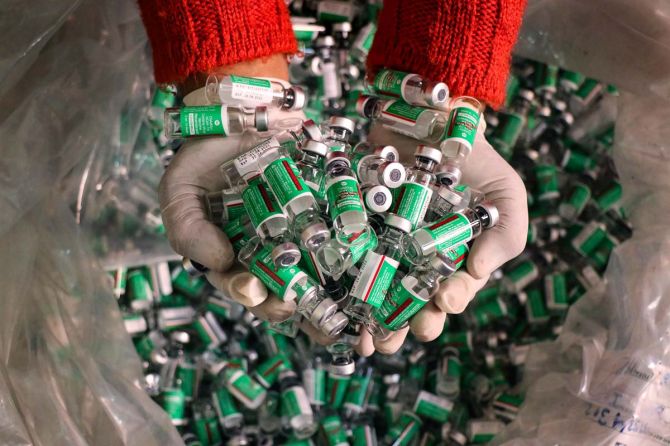
Dr Angelique Coetzee -- the South African general practitioner who first very perceptively noticed the arrival of Omicron in patients in her surgery in Pretoria -- bluntly suggests commonsensical measures to keep yourself safe from this highly contagious variant of the COVID-19 virus.
She believes it is imperative to arm yourself with facts, not function on fear and know exactly what the symptoms of the Omicron strain are.
In Part II of her interview to Vaihayasi Pande Daniel/Rediff.com, Dr Coetzee stresses the importance of proper masking.
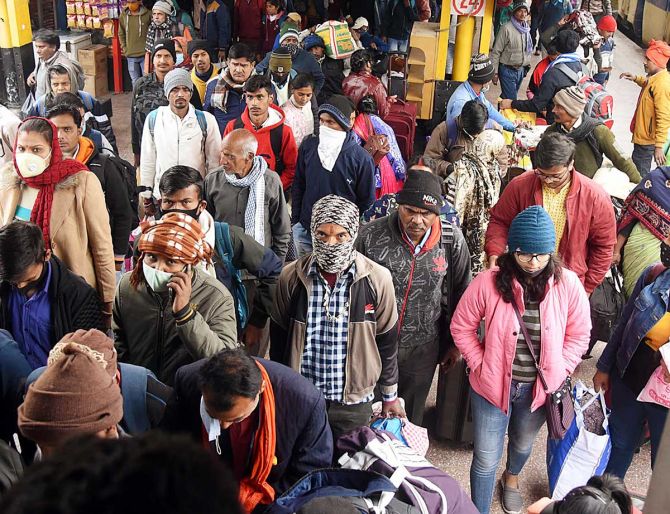
I know you are not an evolutionary virologist, but you were the person who discovered this new variant, Omicron.
What is your gut feeling on the chances of the next significant variant being worse than Omicron, or the same as Omicron?
I think it should be more or less the same. I might be wrong, but it all depends...
What people don't understand is the virus also wants to live. The virus doesn't want to kill people off because the moment the virus kills people off, the virus itself is going to die. The virus also wants to survive.
The variant will most probably be contagious. And it will become endemic. But I don't think -- hopefully -- we will ever a variant like Delta.
Delta was the worst. Delta is very scary. I have treated personally over 600 Delta patients That variant is extremely scary.
Omicron is not as scary as Delta, not if you have treated Delta.
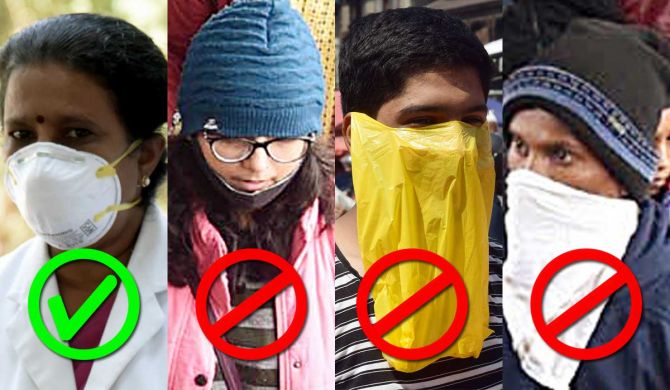
You've seen so many patients and so many COVID-19 patients and you probably get asked so many questions. What is the stupidest thing that people are still doing two years after this pandemic began?
Not wearing their masks! Not wearing their masks!
I cannot believe it -- that must to be part of your makeup every day.
Just put the mask on! A clean mask, if it's possible.
And don't take it off and don't touch it?
And don't party!
And if there's no wave and if you are (your country is) between COVID-19 waves, I will understand if you did socialise.
But if you are in a wave -- and everyone is telling you that it is a wave caused by a contagious variant that is going around -- and you then want to party, then if you get this virus thing, you only have yourself to blame.
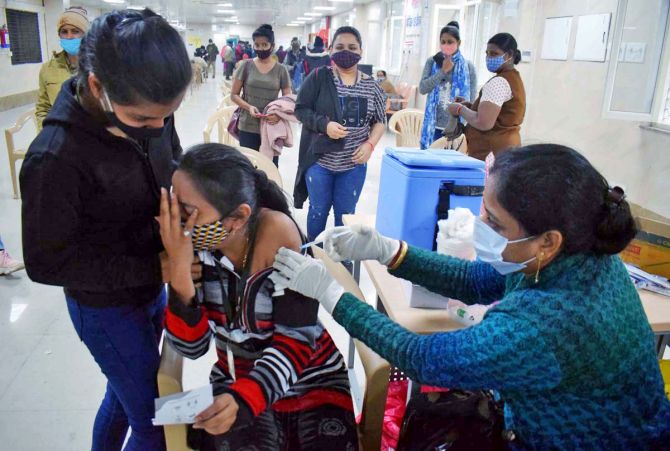
Even though WHO has been stressing it for the longest time, much of the world doesn't still seem to understand the importance of vaccine equity.
As a doctor sitting in South Africa, you know exactly what are the consequences of the lack of vaccine equity?
First of all, you're never going to booster shot out of a pandemic -- I think that's important to realise. If you think you think you're going to booster yourself out of the pandemic, in COVID-19's case, you can forget it.
Vaccines are going to help you not to get into severe disease. But you have to wear masks and use the non-pharmaceutical interventions that we keep on (talking about). It's common sense.
And then we need to empower the people out there on the symptoms. Now, if you ask the ordinary person out there, what are the symptoms of Omicron, they won't be able to tell you. But they will tell you it is going to kill you.
Everyone is preaching fear, instead of empowering the people to understand what you need to be looking out for. (If they know what they are supposed to be looking out for) then once you get it, you would know how to act on it. But you cannot act, if you don't know what it is.
But what about vaccine equity? What about the fact that the rest of the world doesn't care that the majority of the world is still not fully vaccinated?
We're always going to have the virus going around. That's why I'm saying it's going to become endemic.
Because if we don't get the majority of the world vaccinated, the virus will still survive and it will mutate.
It's because it (the virus) also wants to survive. It will mutate itself so that it can be escape the vaccines or else the antibodies (that vaccines produce in you as defence against COVID-19) will kill it.
Remember, always, the virus doesn't want to die. So, it will also try to survive.
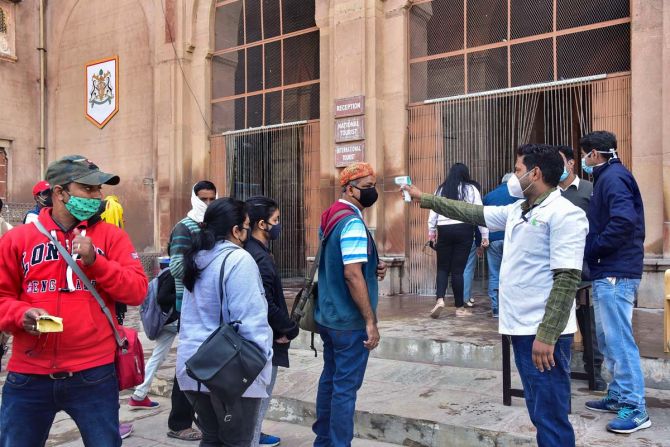
In connection with your discovery of Omicron: When did you first get a sense that you were seeing a new significant variant that made you sure that it might be a variant to watch?
When we first saw it, the symptoms were different.
We first needed to wait. We started to see these kinds of patients (with Omicron symptoms), but then we had to figure out is it (the new variant) going to make them severely ill? Or is it going to be mild? What is it going to do now and how fast is it going to spread?
So with any variant those will always be the questions: What is it going to do? What is the clinical picture? Is it more virulent? Is it more fast spreading? Is it both? You know: W what do you have?
Those will always be the questions that you need to understand going forward.
And then you have to empower your people to understand what to do. We should get away from fear. And vaccines are important.
I'm always saying if Africa is not vaccinated, the rest of the world will never be able to sleep sound and happy.
We have to get people vaccinated.
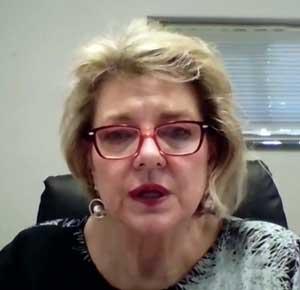 IMAGE: Dr Angelique Coetzee. Photograph: ANI Photo
IMAGE: Dr Angelique Coetzee. Photograph: ANI PhotoWhen you first encountered Omicron, what led you to feel that this new variant was a variant we had to be cautious of?
Because you all of a sudden see people coming in with the same symptoms, testing positive for COVID-19. And you know, this is not Delta, you know, it's not Beta. And you know it's not the first variant, then it must be another one.
It's the symptoms -- it's always about the symptoms.
People tend to forget this, because they want the scientists to go and sequence it. But the scientists can only start sequencing if we say to them: 'Look, there's something else going on go. Look and see what you can find'.
It's the clinical picture that's important.
Feature Presentation: Ashish Narsale/Rediff.com










